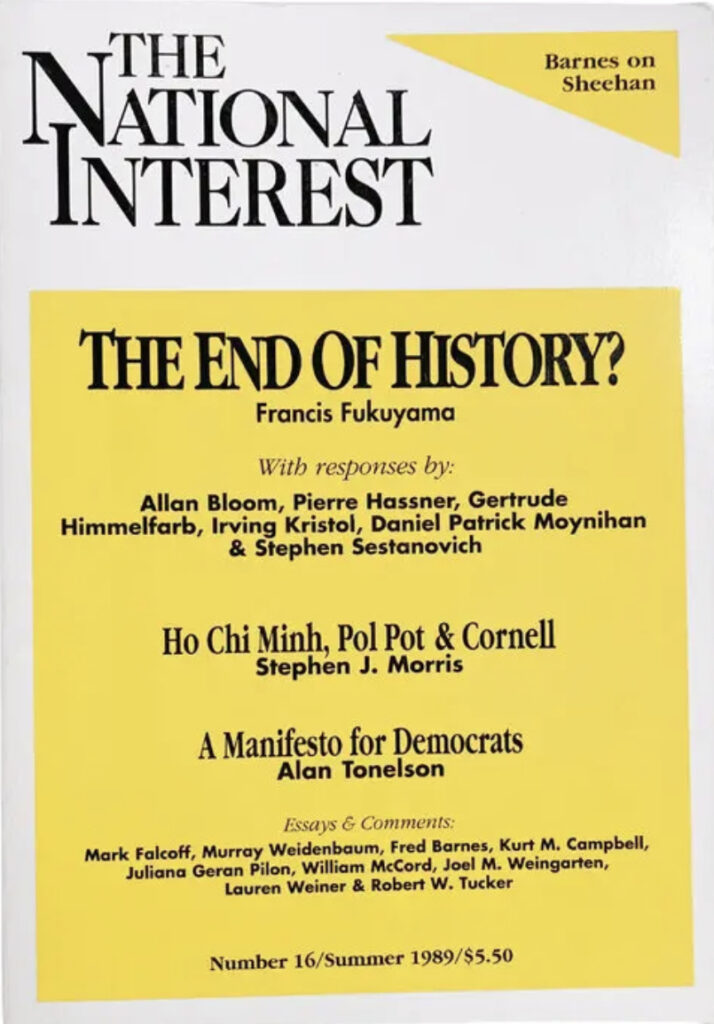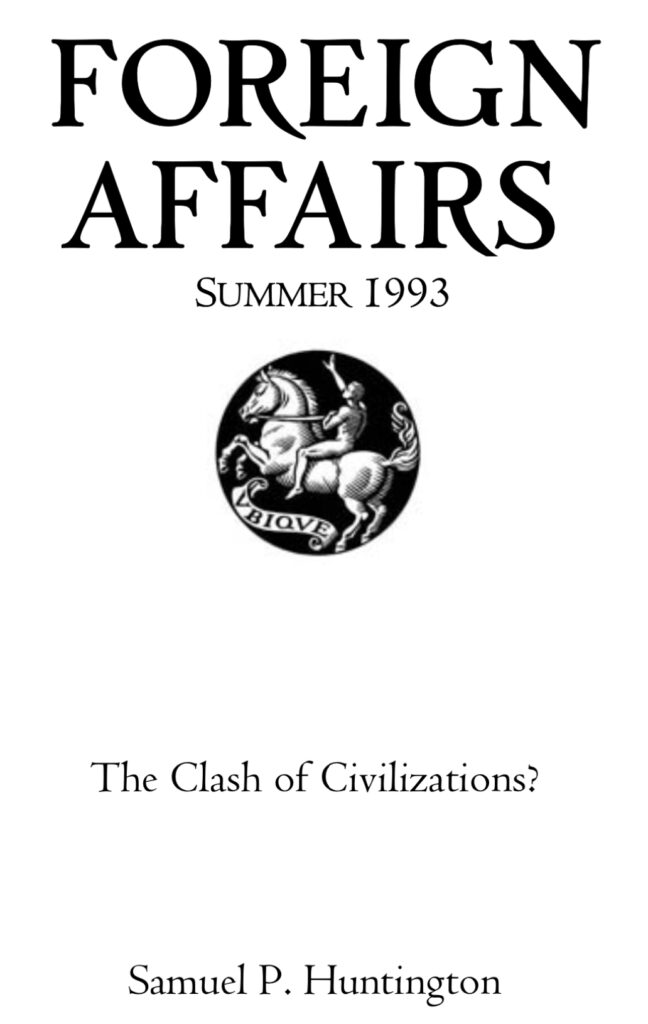Set in 1859, my novel, A Court at Constantinople, uses a principle from nineteenth-century international law—the “standard of civilization”—to drive the plot and seed the story’s themes. During the nineteenth and early twentieth centuries, that principle divided the world into “civilized” and “uncivilized” countries. European countries—including those of European origin, such as the United States—were civilized. Nations in Africa and Asia were uncivilized, until they adopted European forms of government, law, and justice.
The standard of civilization disappeared as the twentieth century progressed, giving way to ideological discourse about international relations during and after the Cold War. However, in recent years, politicians, leaders, and governments have increasingly framed politics at home and abroad through different notions of civilization. That turn toward the semantics of civilization not only connects with the past but also reveals interesting—and quite disturbing—features of contemporary world affairs.
Civilization and Supremacy
European nations devised the standard of civilization as their power grew and influence expanded during the “age of empire” that lasted approximately from 1814 until 1914. Use of the concept of civilization, of course, predated that era of European dominance. For example, pre-nineteenth century empires in China perceived Chinese civilization as superior to those of neighboring societies. Encounters between European nations and indigenous populations, such as in North America in the seventeenth and eighteenth centuries, were often portrayed as those between civilized and uncivilized peoples.
Simply put, those appeals to civilization across centuries were claims of political and cultural supremacy that accorded the civilized, or the more civilized, authority and privileges the exercise of which brought power and wealth that reinforced the claims of superiority.
World Wars I and II
The standard of civilization fell from grace in the first decades of the twentieth century, its demise ensured by World War I, a bloodbath caused by the same European countries that had anointed themselves in the nineteenth century as the world’s civilized nations. Leaders, such as British Prime Minister Winston Churchill, often portrayed World War II as a battle for European or Western civilization, but that civilization produced Nazi Germany in Europe and Imperial Japan in Asia—a nation that Europeanized during the late nineteenth century.
Both world wars also generated more concern about ideologies than who was, or was not, civilized. The emergence of the United States as a global power during World War I, the 1917 Bolshevik revolution in Russia, and the rise of fascism in Germany, Italy, and Japan made World War II a conflict about what ideology would shape the world’s future. The allied victory over the fascist powers quickly devolved into a contest between the United States and Soviet Union for global ideological supremacy.
The Cold War
During the Cold War, the struggle between the Soviet Union and the United States, and their respective allies, was predominantly ideological rather than civilizational in nature. The competing ideologies—liberal democracy and communism—emerged from Western political thinking and traditions.
The process of decolonization following World War II created new states in Africa and Asia eager to throw off Western imperialism and the prejudices associated with it. Many developing countries in Africa and Asia formed a nonaligned movement to mitigate their future being dictated by the superpower rivalry, but that movement was not framed in civilizational terms given the diverse histories of regions and countries involved.
After the Cold War

The end of the Cold War brought what Francis Fukuyama called the “end of history” ushered in by the triumph of the liberal democracies over Soviet communism. The early post-Cold War period experienced U.S. hegemony, economic liberalization, cultural globalization, and the spread of democracy. The political, economic, and cultural dynamics of harmonization produced talk of an emerging global civilization. The primacy of Western thinking led some experts to opine that liberalism operated as the standard of global civilization.

Samuel Huntington challenged this perspective in the 1990s by positing that a “clash of civilizations” would increasingly characterize world affairs. For Huntington, culturally rooted identity, not transnational ideology, defined a civilization. He believed that the Islamic and Chinese civilizations would resist and challenge the post-Cold War dominance of Western, liberal civilization.
In the first decade of the twenty-first century, international politics did not align with Huntington’s thesis. The U.S.-launched “war on terror” after the 9/11 terrorist attacks was a response to a violent, extremist version of Islam, not a reaction from the Islamic civilization. China was experiencing economic growth because, in part, it was integrated with the Western-dominated economic order, including as a member of the World Trade Organization. But, in that decade, China was not considered a rival of the United States, let alone a civilization ready to confront the U.S.-led liberal international order.
Political Transformations Revive Civilizational Talk
In the 2010s, politics within Western democracies, the international balance of power, and the global fate of democratic governance shifted. The vote in Britain to leave the European Union (Brexit) and the nationalism, populism, and polarization roiling U.S. politics raised questions about Western democracy. The global decline of democratic governance continued, heightening doubts about the West’s power and influence. China and Russia changed the balance of power, ending U.S. hegemony and restarting geopolitical competition in international relations.
Those domestic and international political transformations have been accompanied by politicians and political leaders resorting to civilizational rhetoric. Stephen Miller, an advisor to former President Donald Trump, called the United States “the apex of Western civilization.” European leaders, such as French President Emmanuel Macron, promised to protect European civilization. Russian President Vladimir Putin intensified his claims that Western societies are decadent and has promoted the virtues of the Russian civilization. As China’s power and influence increased, President Xi Jinping has championed Chinese civilization in seeking a new world order not dominated by Western democracies.
Such civilizational talk in American, Chinese, European, and Russian political rhetoric has prompted discussions about the concept of a “civilizational state,” which Bruno Maçães defined as a state with “an overarching framework for social and political life” offering “a viable or plausible alternative to the liberalism of the West.” Conservative movements in democracies—such as India, Israel, and the United States—are also linked to the idea of a civilizational state because those movements are anchored in religious, cultural, and political traditions that challenge mainstream liberalism in domestic and foreign policy.
Back to the Future?
The reemergence of civilizational rhetoric suggests that political leaders around the world have incentives to cloak their respective political preferences in the raiment of civilization rather than, for example, narrow national interests or a transnational ideology. The European nations that devised and applied the standard of civilization in the nineteenth and the early twentieth centuries had similar incentives, underscoring that civilizational justifications for the possession and exercise of power have enduring attractiveness.
However, contemporary civilization-politik is not a mirror image of the old European standard of civilization. That standard had no rivals in reach and impact, and it contributed to the process of global modernization associated with the spread of European power, ideas, and technologies in the nineteenth and early twentieth centuries. In contrast, today’s political terrain bristles with competing civilizational claims from countries with power and influence. In that sense, the world is multipolar in terms of not only the balance of power but also the competition among civilizations.
A tag line from A Court at Constantinople reads: “It is dangerous for lawyers and lovers when civilisations clash.” But the danger is much greater. As history teaches, using civilization to justify the exercise of power can too easily become “the civilization justifies the means”—a frightening prospect in a world that appears to be moving toward real clashes of civilizations.
